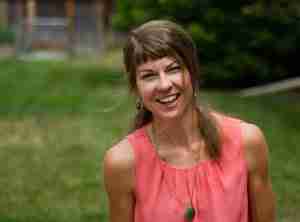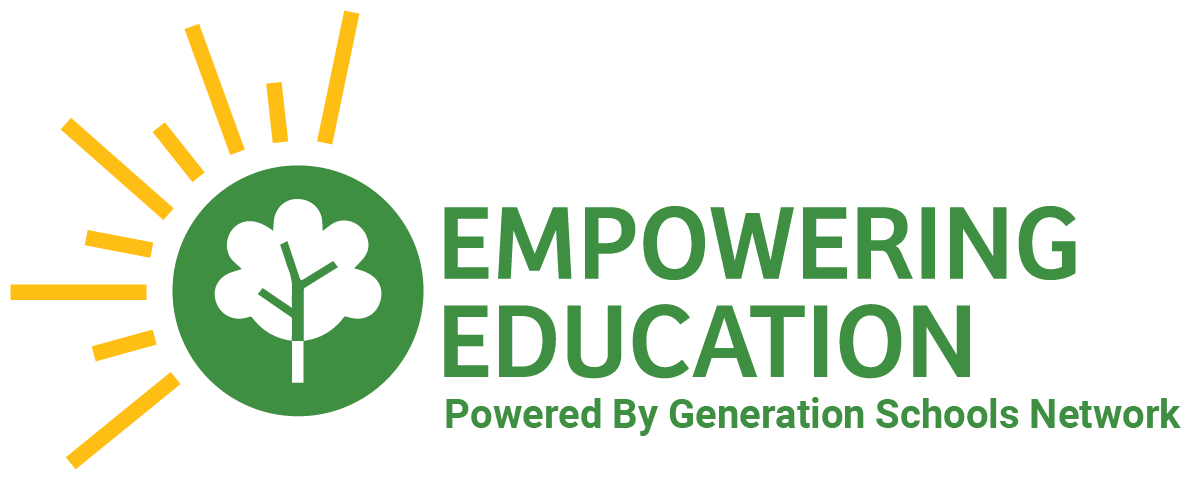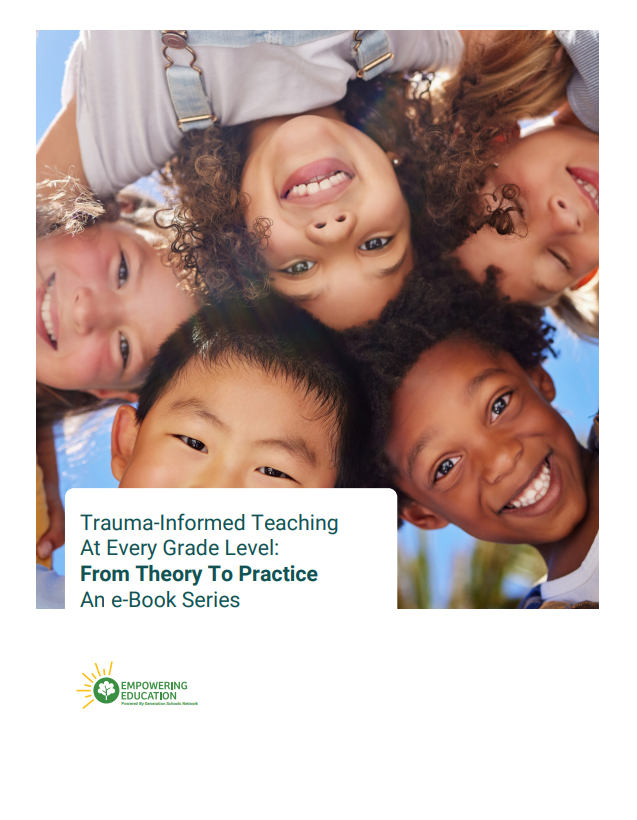“Educational institutions are full of divisive structures, of course, but blaming them for our brokenness perpetuates the myth that the outer world is more powerful than the inner.”
-Parker Palmer
A Culture of Disconnect
In years of conducting educational research, I noticed one theme emerge again and again: teachers were kept so busy with the demands of
Teachers internalized the coded messages of our education system to the point where they regarded the classroom as a place designed strictly for audited, measurable learning experiences. As a result, many teachers spent their free time cheering on the sidelines of basketball games at night, sitting through soccer games on weekends, and even attending family barbecues. They truly loved their students and felt that in these spaces- far away from the demands and structures of school- their kids could actually be themselves. The funny thing was, these teachers never turned that gaze inward to see what was so obvious to me: that in these rare, relaxed moments the teachers felt they could actually be themselves as well.
Finding the Inner Self Within the Walls of Structure
As a teacher, I got to know my students in the unguarded moments that we met beyond the walls of the classroom. Where suddenly Hector’s buoyant energy was a gift and not a disruption, and quiet Lily showed a startling edge when surrounded by people she trusted. It made me appreciate the complexity of my students and question the structures I lived by during the workday. Every teacher knows these structures: assessments, rubrics, quantitative data, grading, discipline procedures, progress monitoring, grade level expectations, the list goes on. As a reinforcement of these daily realities most teacher evaluation tools - including RANDA, the statewide evaluation system in Colorado - largely reduce “teaching” to a set of techniques that can be codified, measured, and reproduced.
Teachers choose education as a path because they want to make a difference in kids’ lives. However, in very few formal frameworks for evaluation and conduct do we see this intrinsic motivation reflected clearly and without ambiguity. Broken by the disconnect between external structures and their internal values, far too many of our teachers burn out.
How can we as educators stay renewed and sustained in a world that so often asks us to enact a role anathema to our calling?
Parker Palmer touches on the key to unlocking this mystery: in strengthening the inner self we can move adeptly through the structures that seem to constrain us. Many of us do teach in untenable school cultures, but developing a strong sense of self will allow for the calm and clarity necessary to make life-giving decisions in the face of these challenges.
Deep Practices: A Force for Change
There exists a large (and growing) body of research that validates the need to teach the “whole child.” Students who feel safe, welcome, cared for, and truly seen as fully-fledged human beings will find authentic joy in being at school. But what about the whole teacher?
It seems odd that in our pursuit to help kids develop into the best versions of themselves we would neglect to extend that same support their educators. Teachers must have strong knowledge of their content in order to teach it, so how is Social-Emotional Learning any different?
Luckily this question is starting to spread. A recent publication from CASEL indicated that teachers with more exposure to Social-Emotional Learning in their pre-service teaching programs were better able to relate to students, promote pro-social classrooms, and help kids grow in their own social-emotional learning goals (Schonert-Reichl, Kitil, & Hanson-Peterson, 2017).
Social-emotional learning for teachers is an integral part of developing deep practices, which are necessary for sustaining educators in the profession. Deep practices are defined as any decision or action that originates from the heart of the teacher (Michalec & Newburgh, 2018). Teachers with well-developed deep practices are highly socially-emotionally competent and as a result report higher job satisfaction, lower incidents of negative student behavior, higher levels of teaching efficacy, and less stress related to workload (Collie et al., 2012).
Deep practices are developed through the quiet, reflective practice of getting to know the “I who teaches” (Palmer, 1998, p.10). In accessing the inner realm of the self that Parker Palmer touches on, teachers can create an unshakable commitment to their authentic values regardless of external forces. Teaching more than any other profession pushes us to our thresholds again and again. Confronting these edges with grace and self-compassion allows us to root ourselves within our deepest consciousness and grow beyond what we previously thought of as our limits.
This is why social-emotional learning for teachers should be a right and not a prerequisite. Teaching is a profession grounded in humanity, connectedness, and relationships. To do their best work, and to remain positive and resilient in the face of all of the challenges offered within a single day, hour, or lesson, teachers should have access to the tools that will help them uncover and hone their inner strengths.
This is the key to shaping the ways that teachers and students interact, and to creating those relaxed, interconnected moments even within the rigid structure of our system. Widespread cultural and systemic change will happen from the inside out, and with a teaching force of sustained, engaged educators, limits that once seemed impossible to overcome will become nothing more than another threshold to grow beyond.
Written by Kate Newburgh, Ph.D.
About the Author : Dr. Kate Newburgh is the founder of Deep Practices Education Consulting, a social enterprise dedicated to establishing sustainable equity in schools. With over a decade of experience in education, her roles have included teacher, educational researcher, academic affairs director, curriculum specialist and instructional coach. She received her Ph.D. in Curriculum and Instruction from the University of Denver with a research focus on teacher retention and whole-teacher supports. Learn more about Kate and the work she does at www.deeppractices.com
: Dr. Kate Newburgh is the founder of Deep Practices Education Consulting, a social enterprise dedicated to establishing sustainable equity in schools. With over a decade of experience in education, her roles have included teacher, educational researcher, academic affairs director, curriculum specialist and instructional coach. She received her Ph.D. in Curriculum and Instruction from the University of Denver with a research focus on teacher retention and whole-teacher supports. Learn more about Kate and the work she does at www.deeppractices.com
References:
Collie, R. J., Shapka, J. D., & Perry, N. E. (2012). School Climate and Social–Emotional Learning: Predicting Teacher Stress, Job Satisfaction, and Teaching Efficacy. Journal of Educational Psychology, 104(4), 1189-1204.
Michalec, P., & Newburgh, K. (2018). Deep Practices: Advancing Equity by Creating a Space and Language for the Inner Core of Teaching. Teacher Education and Practice, 31(1).
Palmer, P. (1998). Courage to teach: Exploring the inner landscape of a teacher’s
Schonert-Reichl, K. A., Kitil, M. J., & Hanson-Peterson, J. (2017). To reach the students, teach the teachers: A national scan of teacher preparation and social & emotional learning. Retrieved from Vancouver, BC:


